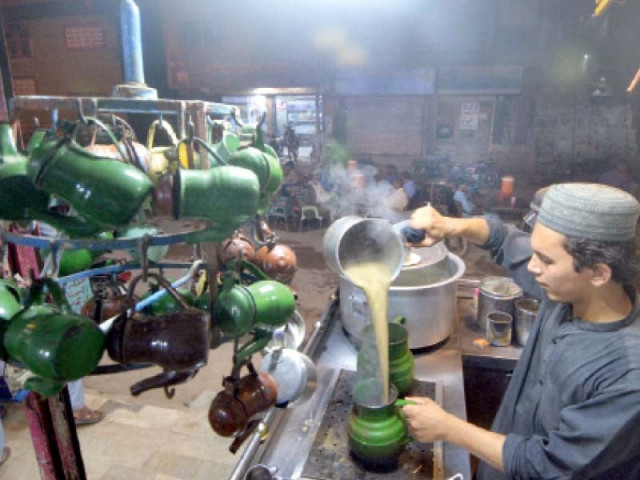Your doodh patti has microplastic! No joke
Research detects traces of toxic particles in favorite hot beverage of Karachi

A new research has found traces of microplastic contamination in a favorite hot beverage of Karachi: the doodh patti chai.
Microplastics are tiny plastic particles, less than five millimeters long, that result from both commercial product development and the breakdown of larger plastics. As a pollutant, microplastics can be harmful to the environment and animal health.
Rampant microplastic is contaminating everything, from air and water, to food and even human bodies. A recent research has found microplastics in abundance in drinking water and food. According to a 2019 study, one person consumes approximately 1,769 microplastic particles every day, including through vegetables and fruits. The apple we consume may contain 195,500 microplastic particles per gram, while the carrot may contain more than 100,000.
Fish, beverages, and salt are considered major sources of microplastics. Pakistan is also not safe from microplastic contamination. It is feared that microplastic is fast becoming a rampant part of our environment and our food. With this in mind, the World Wildlife Fund - Pakistan (WWF-Pakistan) and Jinnah University for Women (JUW) initiated a study to determine the amount of microplastic affecting us.
The study found that the amount of microplastics along the coast is increasing to alarming levels. About 300 microplastic particles were found in one gram of sand, which indicates the very high level of contamination along the coastline.
Alarmed by the dangerous levels of pollution, the researchers then brought the food chain under the microscope. "The research started with an analysis of the diet of the common man. It attempted to determine the number of microplastic particles in doodh patti, a popular hot beverage consumed everywhere," Hina Moin, a researcher at Jinnah University for Women, who has previously studied the Clifton beach sand.
"Tea samples were collected from different areas of the city. The samples were found to be contaminated with microplastic," Moin said. "Since doodh patti tea is consumed in 100 to 250 milliliter cups, about 100 to 1,250 microplastic pieces enter our body with each cup."
The researcher further said that they have not found any significant difference in microplastic contamination in the samples obtained from different areas of Karachi because the tea-sellers everywhere use the same raw material: tea leaves, milk and sugar, and the preparation method is the same.
"The presence of significant amount of microplastic in doodh patti tea is a cause of concern and more research is ongoing in this regard," she added.
Muhammad Moazzam Khan, Technical Adviser for WWF-Pakistan, also said that the presence of microplastic in doodh patti tea samples is alarming.
"The composition of each particle of microplastic depends on the chemical composition of the basic plastic, its use and breakdown," he said. "The particles have the ability to absorb environmental pollutants on their surface. If these pollutants and chemicals are toxic, then these microplastic particles can also be toxic and harmful and their inclusion in human food can be harmful to health," Khan added.
Khan further said that microplastic testing research is still going on worldwide. "The prevailing opinion is that microplastic themselves are probably not harmful, but the chemical substances that accumulate on its surface can have negative effects on human health," he added.
Published in The Express Tribune, September 27th, 2022.



















COMMENTS
Comments are moderated and generally will be posted if they are on-topic and not abusive.
For more information, please see our Comments FAQ